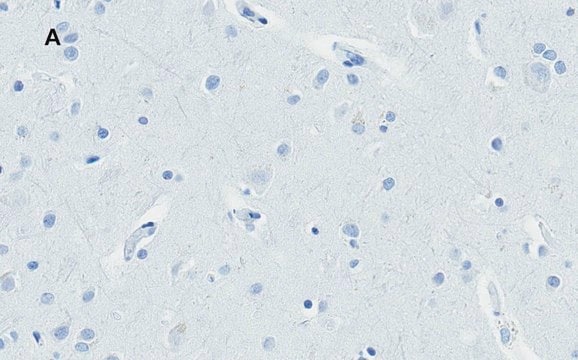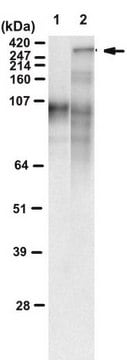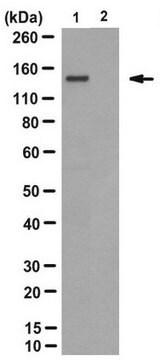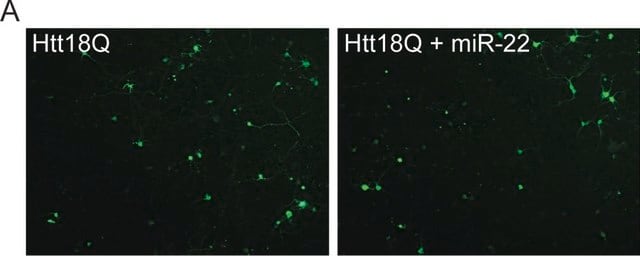MAB2168
Anti-Huntingtin Disease (HD/HTT) Antibody
CHEMICON®, mouse monoclonal, HU-2E8
Scegli un formato
833,00 €
Spedizione prevista il18 aprile 2025Dettagli
Scegli un formato
About This Item
833,00 €
Spedizione prevista il18 aprile 2025Dettagli
Prodotti consigliati
Nome del prodotto
Anti-Huntingtin Protein Antibody, a.a. 2146-2541, clone HU-2E8, ascites fluid, clone HU-2E8, Chemicon®
Origine biologica
mouse
Livello qualitativo
Forma dell’anticorpo
ascites fluid
Tipo di anticorpo
primary antibodies
Clone
HU-2E8, monoclonal
Reattività contro le specie
monkey, human
Produttore/marchio commerciale
Chemicon®
tecniche
ELISA: suitable
immunocytochemistry: suitable
immunohistochemistry: suitable (paraffin)
western blot: suitable
Isotipo
IgG1
N° accesso NCBI
N° accesso UniProt
Condizioni di spedizione
dry ice
modifica post-traduzionali bersaglio
unmodified
Informazioni sul gene
human ... HTT(3064) , SLC6A4(6532)
Specificità
Immunogeno
Applicazioni
Western blot: 1:500-1:5,000
Immunohistochemistry on frozen and microwave oven treated paraffin sections
(human tissue): 1:500-1:5,000
Immunocytochemistry on transfected cells: 1:500-1:5,000
Optimal working dilutions must be determined by the end user.
Neuroscience
Neurodegenerative Diseases
Stato fisico
Note legali
Esclusione di responsabilità
Non trovi il prodotto giusto?
Prova il nostro Motore di ricerca dei prodotti.
Raccomandato
Codice della classe di stoccaggio
10 - Combustible liquids
Classe di pericolosità dell'acqua (WGK)
nwg
Punto d’infiammabilità (°F)
Not applicable
Punto d’infiammabilità (°C)
Not applicable
Certificati d'analisi (COA)
Cerca il Certificati d'analisi (COA) digitando il numero di lotto/batch corrispondente. I numeri di lotto o di batch sono stampati sull'etichetta dei prodotti dopo la parola ‘Lotto’ o ‘Batch’.
Possiedi già questo prodotto?
I documenti relativi ai prodotti acquistati recentemente sono disponibili nell’Archivio dei documenti.
Filtri attivi
Il team dei nostri ricercatori vanta grande esperienza in tutte le aree della ricerca quali Life Science, scienza dei materiali, sintesi chimica, cromatografia, discipline analitiche, ecc..
Contatta l'Assistenza Tecnica.





